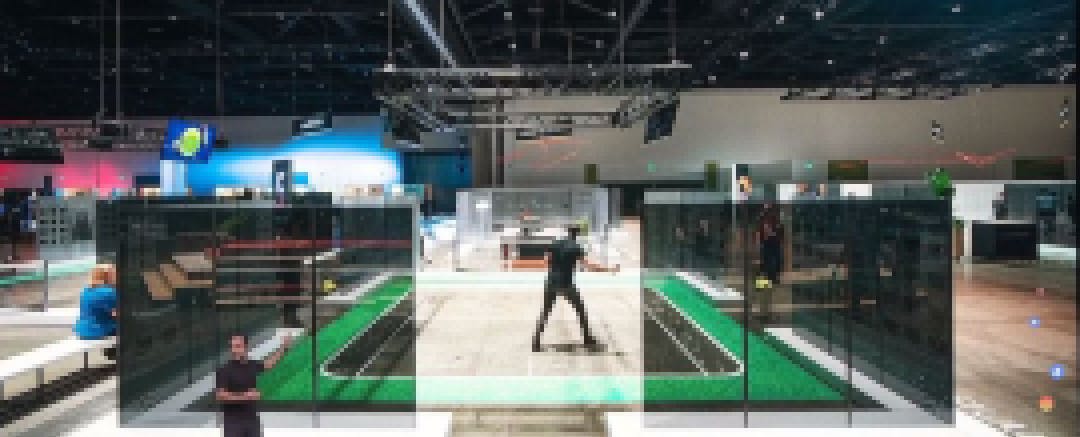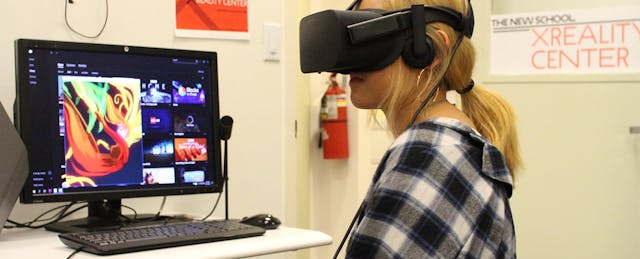Last month Facebook announced the next generation of its VR headset technology, and though the previous models have not caught on widely among consumers, it is worth thinking about how the emerging technology could be used at colleges.
The new device is called Oculus Quest, and it works without wires, overcoming what has been a major drawback of the the earlier Oculus—and of many competing products. After all, it’s hard to focus on an immersive virtual world when your real-life body keeps tripping on plastic cords.
The new model also doesn’t require a high-end computer to make it work. Both of these improvements make the devices far more likely to find uses in classrooms, or in labs like the one I lead at the New School in Manhattan. I had the chance to strap on one of the headsets during Facebook’s Connect 5 conference in San Jose where the company unveiled them.
By offering standalone VR without the need for a computer and sensors, we may see a surge of location-based immersive experiences on campus. The concept of highly customized location-based simulation on campus that involves other sensory experiences such as wearing haptic vests, props, and environmental controls may remake the all-purpose university VR lab into a more advanced location-based immersive learning environment.
For one thing, the Oculus Quest allows for the creation of virtual spaces that are arena-scaled, allowing for many participants to interact at once.

At the Oculus Connect event, one demonstration took place in a 4,000-square-foot space, about the size of some large college auditoriums. Imagine using the device to simulate walking among the ruins of Ancient Rome instead of a 360° video experience, or a complete recreation of a Hospital ward instead of a virtual bed and a patient, or a complete science and prototyping lab. Whether working on highly technical or soft skills these Holodeck-like experiences could offer role-play options for virtual teams—and assessment data that far exceeds what we capture in either the physical or online classroom today.
As Oculus Chief Scientist Michael Abrash pointed out during the event’s keynote, in the next five years developers are poised to make significant advances in the areas of optics and displays, graphics, eye tracking, audio, interactions, ergonomic and computer vision. The convergence of these technologies with AI will accelerate the pace of development—and, the company hopes, adoption.
These sleek new Oculus Quest devices won’t be available until spring 2019 at the earliest, and are expected to retail for $399.
The Oculus Quest improves on the Oculus Go, released earlier this year, in a number of ways, but mainly that it tracks the movements of your body, not just which which direction your head is turned. The concept is known as six degrees of freedom. Like its predecessor, it relies on handheld controllers, so that your hands are present in the virtual experience.
Oculus Quest is but another point on a rapidly developing immersive timeline as Facebook, Google, Microsoft, and Magic Leap continue to push the boundaries of the technology forward.
For me, the relatively low-cost of standalone VR headsets will empower our students to play a greater role in shaping our immersive experiences. Interactive tools like Quill, Google’s Tilt Brush, and Google Blocks as well as other design and prototyping tools will become more accessible and easier to use. With Oculus Quest, we have the opportunity to develop the next generations of storytellers, thinkers, makers and creators, curious about the future.


